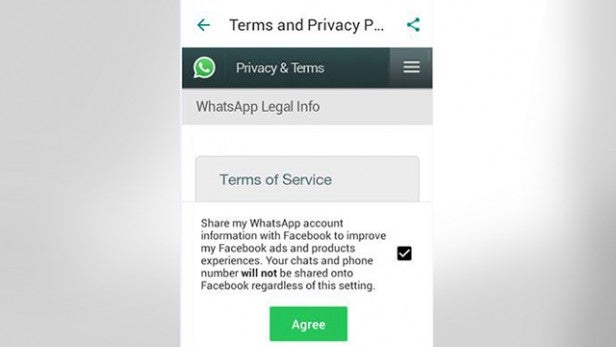WhatsApp Privacy Storm: Why your user data may be under threat

A storm has brewed after WhatsApp revealed plans to share user data, including phone numbers, with Facebook as part of an update to its terms and conditions. Is this a threat to your privacy? Here’s what you really need to know.
The company announced the update on a blog post, where it detailed the changes and how they will affect users. It’s the only change to its policies in the last four years and the first since it was acquired by Facebook in 2014.
In a statement, the company explains: “While WhatsApp will continue to operate as a separate service from Facebook, we plan to begin sharing some information that will allow us to coordinate more in the months ahead and improve experiences across services.
“For example, once people accept the updated terms and privacy policy, we will share some of their account info with Facebook, such as the phone numbers people use to sign up for WhatsApp, along with how often people are using our service.”
Related: iPhone 7
 The notification that will soon appear in the app
The notification that will soon appear in the app
The company says this will enable them to better fight spam and abuse on the messaging app and website, as well as provide a ‘more personalised experience on Facebook’ – essentially using your data to show you more targeted ads.
The changes to the terms and conditions don’t mean you’ll be seeing your phone number pop up on Facebook, however.
As WhatsApp explains: “None of the information you share on WhatsApp, from status updates to messages, will be shared onto Facebook for others to see.”
What’s more, users have the ability to opt out of the information sharing. However,
Interestingly, in terms of the information Facebook will receive, the company says it plans to share “your phone number as well as the last time you used our service. At this time, we have no plans to share with Facebook other optional account information that you may provide.”
In which case, opting out seems to be somewhat redundant, as WhatsApp says: “regardless of what you choose, we will share some information with Facebook (e.g., the phone numbers people use to sign up for WhatsApp, along with when and how often people are using our service).”
Related: WhatsApp tips and tricks
Opting out then, is simply a way of preventing Facebook from using your information to tailor ads, and not a way of preventing your data actually being sent to Facebook.
In terms of your information being shared with other companies, WhatsApp states: “As one family of companies, apps like Instagram may also use information from WhatsApp for things like suggesting accounts to follow and keeping spam off their platform.”
In the company’s blog post,it describes its plans to “test ways for people to communicate with businesses in the months ahead”.
Starting today (August 25), WhatsApp users will be sent a notification regarding the updated terms, and will have 30 days to agree. Those who don’t accept won’t be able to use Whatsapp after the 30 days.
If you want to opt out, you’ll be provided with that option in the notification that should appear in your WhatsApp soon. Opting out will also be accessible through your app settings for 30 days after you accept the new policy.
Watch The Refresh: The best tech gossip and reviews every week
What do you think of WhatsApp’s new policy? Let us know in the comments.

